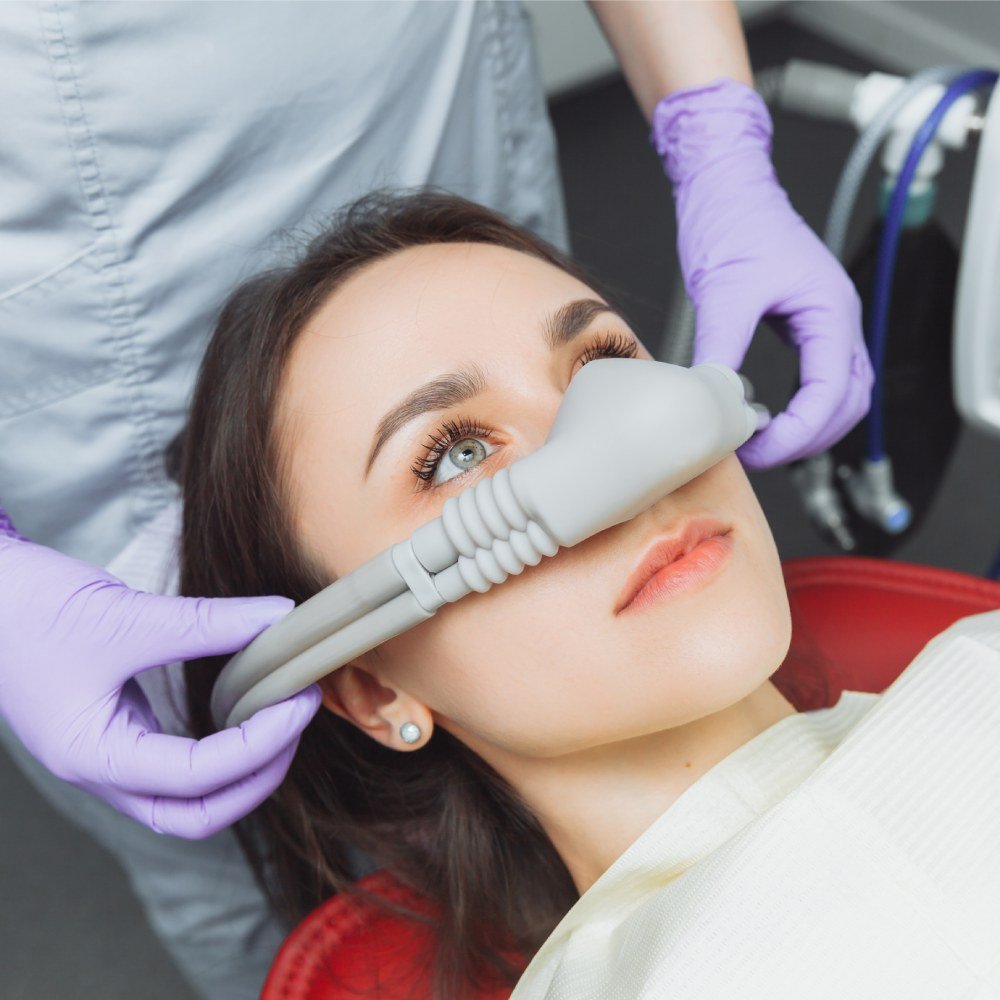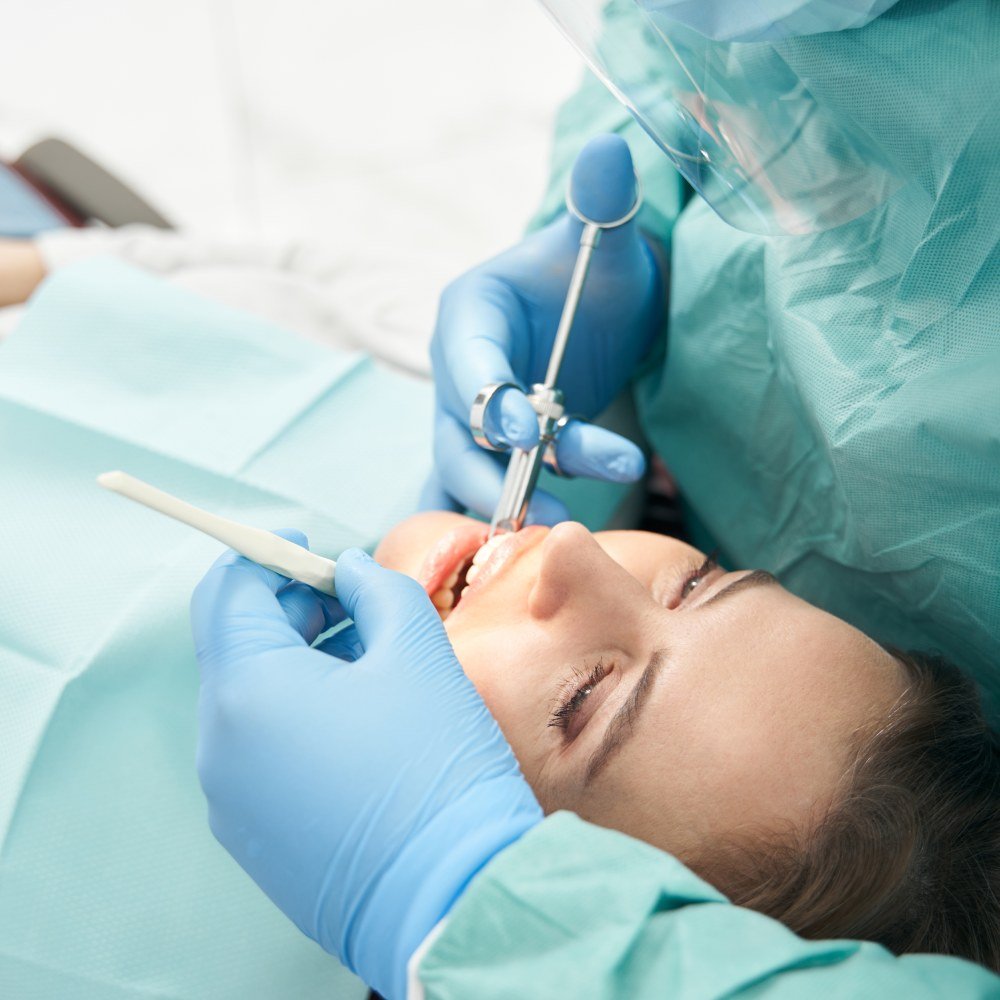Best Sedation Dentistry Hollywood, FL

Sedation Dentistry Hollywood, FL
Looking for Sedation Dentistry in Hollywood, FL? At Tamara Rojas DMD PA, we prioritize your ease and tranquility through our specialized sedation dentistry services.
Whether a quick check-up or a big tooth job, our friendly team uses gentle, safe, effective sedation techniques to ensure comfort.
Smile easy, knowing we’re here to make your dentist visit smooth and peaceful.
What is Sedation Dentistry?
Sedation dentistry, often called “sleep dentistry,” is a way to help patients relax during dental visits using medicine.
This practice benefits those who feel nervous or anxious about their appointments. The goal is to ensure the patient is comfortable, making their dental experience smooth and stress-free.
Different types of sedation can be used to match the patient’s needs and the dental procedure being done.
Types of Sedation
When it comes to keeping you calm at the dentist, there are a few different ways we can help.
Different kinds of sedation (or sleep-like states) can be used based on what you need and what the dentist thinks is best.
Let’s talk about a few common types used in dentistry.
Nitrous
Nitrous, also known as “laughing gas,” is a safe and common choice to help patients relax during dental procedures.
It’s a light form of sedation, meaning you’ll stay awake but feel super relaxed. The gas is mixed with oxygen and breathed in through a small mask covering your nose.
The best part? Once the mask is removed, the effects wear off quickly, so you can go about your day as usual!
Oral Sedation
Oral sedation involves taking a pill that helps you feel calm and sleepy.
This type is super easy because all you do is swallow a pill about an hour before your dental visit.
Even though you’ll be awake, you’ll feel relaxed and might not remember much about the procedure afterward.
It’s a good choice for people who want to feel at ease but not be fully asleep. Plus, you’ll need someone to drive you home since you’ll be a bit dizzy.
IV Conscious Sedation
IV conscious sedation (“IV” stands for “Intravenous”) involves giving relaxing medicine directly into your vein through an IV, which allows it to work quickly.
This method lets you stay awake but in a deeply relaxed state. You might only remember a little about what happened during the procedure once it’s over.
The dentist can easily adjust the level of sedation as needed, and it’s a good fit for longer procedures or for those who need a bit more help staying calm.
Remember, you’ll need a ride home afterward since you’ll be too sleepy to drive.
Pros and Cons of Sedation Dentistry
Using sedation during dental procedures can make a big difference in your experience at the dentist. It can turn a nerve-wracking visit into a calm and easy one.
But, like all things, it has its ups and downs. Let’s explore some of the positive sides and some things to think about when considering sedation dentistry.
Pros:
- Ease of Experience: Sedation can make dental visits much easier for people who feel anxious or nervous.
- No Memory of the Procedure: Some types of sedation can make you forget most of the procedure, which is helpful if you’re anxious about it.
- More Work in Fewer Appointments: Because you’re relaxed, the dentist can often do more work in one visit, reducing the number of appointments needed.
- Pain Management: Sedation can help manage pain and discomfort during procedures.
Gag Reflex Control: It can be helpful for people with a strong gag reflex.
Cons:
- Need for Assistance: You might need someone to drive you home after the procedure, especially with certain types of sedation.
- Side Effects: Some people might experience side effects like nausea or dizziness.
- Not Suitable for All: Some people, like those with certain health conditions, may not be suitable candidates for sedation.
- Fear of Needles: IV sedation requires a needle, which might be a concern if you’re scared of them.
Understanding these aspects can help you decide whether sedation dentistry is the right choice for you.
Sedation Dentist: Recovery and Outlook
Navigating through the recovery after sedation dentistry is generally straightforward, but it does hinge on the type of sedation used.
Here’s a bit more detailed information:
- Nitrous Oxide: Recovery is typically swift. The effects of nitrous oxide wear off soon after the mask is removed, often within minutes, allowing you to resume your normal activities immediately.
- Oral Sedation: Recovery might take longer, and you may feel dizzy for a few hours after the procedure. It’s crucial to have someone drive you home and, ideally, stay with you for a few hours afterward.
- IV Conscious Sedation: The recovery period can vary, but you might feel drowsy for the rest of the day. Again, you’ll need a ride home and should take it easy for the remainder of the day.
Useful Information:
- Eating and Drinking: Your dentist might ask you to avoid eating or drinking for a few hours before sedation, especially if you have IV or oral sedation.
- Post-Procedure Care: Depending on your procedure, you might have specific guidelines to follow, like avoiding straws after an extraction or eating soft foods.
- Follow-Up Appointments: Sometimes, a follow-up appointment is needed to check your recovery and the procedure’s success.
- Medication Management: Ensure you understand any prescribed or recommended medications and accurately adhere to the dosage and timing.
- Rest: Even if you feel fine, resting and avoiding strenuous activities for the rest of the day is usually recommended.
Remember, your dentist will provide tailored advice and guidelines based on the specific procedure and type of sedation, ensuring your recovery is as smooth and comfortable as possible.
Your Sedation Dentist in Hollywood, FL Near You!
Embark on a journey toward a radiant, healthy smile with Tamara Rojas DMD PA, your trusted sedation dentist in Hollywood, FL.
Our dedicated team is here to ensure your dental procedures are effective, utterly comfortable, and stress-free.
Whether you’re here for a routine check-up or a more intricate procedure, we’re committed to making your visit smooth and pleasant.
Get in Touch: Ready to take the next step toward a serene and pain-free dental experience? Call us at (954) 963-4700 to schedule your appointment and explore the best sedation options.

Quality Consult With Doctors!
We want to hear what you have to say! Leave your email or call us at: (954) 963 – 4700
About Periodontal Therapy
Surgical or Non-surgical, Necessary or Esthetic
Nonsurgical therapy has been effective and is the only treatment necessary for some patients diagnosed with mild generalized chronic periodontal disease. Sometimes non-surgical therapy is used in our practice to prolong the life of teeth that periodontal surgical therapy cannot save.
